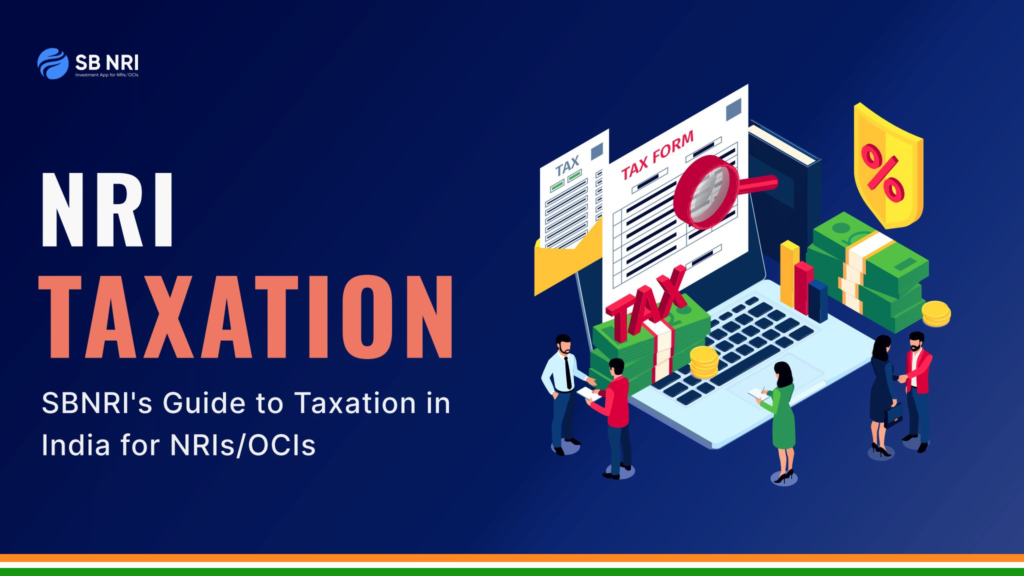
Gift by NRI to Resident Indian under FEMA: Gifts have always been a traditional and social convention in India. However, for an NRI (Non-Resident Indian), giving or receiving gifts comes with specific tax laws. Let’s understand rules for tax on a gift by an NRI to a resident Indian under Foreign Exchange Management Act.
Gift by NRI to Resident Indian Under FEMA
As per the Income Tax Act, a gift by an NRI is an asset received without consideration like money or money’s worth. It can be cash, movable or immovable property, jewelry, etc. Most gifts from or to NRIs are taxable. NRIs can give gifts to resident Indian relatives, friends, etc. NRIs can receive up to USD 250,000 per financial year under the Liberalised Remittance Scheme.
However, rules vary for relatives, friends, acquaintances, etc.
Also Read: Gift from USA to India: Taxation and Exemptions
NRI Gift Tax India
In the next few segments, we will understand how giving or receiving these items as gifts can bring in tax implications and who has to bear them.
Gift Tax is different for relatives and non-relatives and varies with the fact as to whom these gifts are given or received from. Given below is a list of people who are considered relatives under the tax regulations:
- Father
- Mother
- Stepmother
- Spouse
- Children
- Step-Children
- Grandparents
- Grandchildren
- Child’s Spouse
- Siblings
- Grandchild’s Spouse
- Sibling’s Spouse
- Step-sister and Step-brother
Everyone else is simply considered as a non-relative.
Also read: TDS on Sale of Property by NRI in India [New Rates for 2024]

NRI Gift Rules
In this segment, we have listed out some basic rules and regulations revolving around NRI Gift Tax in India. Following this we will discuss the individual Resident Indian to NRI and NRI to Resident Indian gift exchange scenarios.
- You can give an immovable property to an NRI as gift provided the remittance of sale proceeds doesn’t exceed USD 1 Million per year.
- NRIs can receive gifts from relatives in forms of shares and securities provided it doesn’t exceed 5% of the paid up capital of the company; the sectoral cap isn’t branched and the NRI is eligible to hold the securities.
- Gifts that are received from a specified fund or trust or as a scholarship from educational institutions isn’t taxable.
- Immovable properties outside India received as gifts are exempt from tax.
- The value of the gift can not be considered as deduction while calculating income tax.
- Any income that is received from the gift in India is taxable irrespective of whether the receiver and giver are Resident Indians or NRIs.
- Make sure to have the necessary documentation in place when you receive a gift.
- Cash gifts exceeding Rs. 2,00,000/- can be subject to a penalty. Ensure that such gifts are received through cheques or bank account transfers.
- Union Budget 2023-24 for NRIs, all gifts above Rs 50,000 received by a not-ordinarily resident from a resident Indian as a monetary gift would be deemed to arise in India and would be taxable w.e.f. 1st April 2024.
- Gifts from Resident Indian to an NRI can only be sent to their NRO Account.
Also read: ITR Filing for NRIs AY 2024-25: Step-by-Step ITR Filing Process
In the next segment we will compare the different scenarios based on giving and receiving gifts. Let’s explore
| Gift From NRI to Resident Indian | Gift to NRI by Resident Indian |
|---|---|
| Gift from NRI Relative to a Resident Indian is exempt from tax in India for both giver and receiver | Gift from Resident Indian to NRI Relative is exempt from tax in India for both giver and receiver |
| Gifts to Resident Indians from NRIs (non-relative) within Rs.50,000/- are exempt from tax for both giver and receiver | Gifts from Resident Indians to NRIs (non-relative) within Rs.50,000/- are exempt from tax for both giver and receiver |
| On gifts to Resident Indians from NRIs (non-relative) exceeding Rs. 50,000/-, gift-tax is applicable to be paid by the receiver. (The amount is added to the total income of the receiver and taxed as per their income tax slab) | On gifts from Resident Indians to NRIs (non-relative) exceeding Rs. 50,000/-, gift-tax is applicable to be paid by the receiver. (The amount is added to the total income of the receiver and taxed as per their income tax slab) [Maximum Limit: USD 250,000 per financial year defined under LRS (Liberalized Remittance Scheme)] |
| Gifts to Resident Indians from NRIs (irrespective of relation) for marriage or through will is exempted from tax in India for both giver and receiver | Gifts from Resident Indians to NRIs (irrespective of relation) for marriage or through will is exempted from tax in India for both giver and receiver |
Note: Gifts from Resident Indians to NRIs in the form of shares and securities of an Indian Company, the total value can’t exceed Rs. 50,000/- in one financial year. The gift should follow the regulations of RBI regarding NRIs holding stocks in Indian companies.
It is essential to understand about the regulations and tax implications before sending or receiving any kind of gifts. The issues can get complex based on the residential status of the individual involved in the gift exchange. Therefore, it is also important to check the rules of the country you are staying in regarding Gifts and Gift Tax.
Also read: Getting ITR Notice as NRI/OCI? Here’s what you need to know
Gift by NRI to Resident Indian or Vice-Versa: NRI Gift Deed Format
Another very important aspect while sending or receiving gifts is keeping a record of the same through gift deeds. Signing a gift deed and keeping them safe can help you to avoid major issues in the future. Many NRIs often look for a simple gift deed format that they can copy and use, let us know if you need one.
What is NRI Gift Deed?
The Government of India, GOI introduced the Gift Tax governed under the Gift Act 1958 to cover the taxes on receiving and giving of gifts.
Section 17 of the Registration Act, 1908 requires the NRI donor to sign a gift deed. The NRI gift deed is a formal agreement executed between two parties – the donor (who sends the gift) and the receiver of the gift. The gift deed must be printed on a stamp paper and all pages signed by both parties.
Calculate your TDS Refund with SBNRI’s TDS Refund Calculator
A TDS refund is the process of reclaiming the excess tax deducted at source by the payer if the actual tax liability of the taxpayer is lower than the TDS deducted. This situation typically arises when the income tax calculated on the total income is less than the TDS already deducted. To claim a TDS refund, taxpayers need to file an income tax return (ITR). The Income Tax Department processes the ITR and verifies the details. If the tax department finds that the TDS paid is more than the actual tax liability, the excess amount is refunded to the taxpayer.
You can easily find out how much tax refund you can get by calculating your TDS Refund from this TDS Refund Calculator.
Access SBNRI’s Exclusive NRI Taxation Guide

NRIs and OCIs can now access SBNRI’s exclusive NRI Taxation Guide covering in-depth information about DTAA, Gift Tax, Rental Income Tax, ITR Filing, Types of ITR Forms for NRIs, Capital Gain Tax, Income Tax, and more. The report will help you understand India taxation on mutual funds, other asset classes and how you can comply with the regulations.
Access NRI Taxation report here
Wrapping Up
Both NRIs and resident Indians must comprehend India’s gift tax regulations. Understanding the tax implications and exemptions related to NRI gifting is essential whether you are the giver or the recipient. By meticulously planning your gifts and consulting a tax advisor, you can minimize your tax burden and ensure legal compliance. To avoid penalties, maintain accurate records and report all gift transactions. Being well-informed about NRI gifting will help you navigate the gift tax rules and simplify the process for all parties involved.
Contact SBNRI
Due to a complicated tax system and recurrent amendments, understanding tax laws can be confusing and NRIs may be subject to additional fees or miss claiming deductions and other benefits. At SBNRI, we understand this struggle. You can download SBNRI App to connect with our NRI Tax Experts to know more about new TDS/ TCS rules for NRIs. You will also get end-to-end assistance related to NRI tax filing.
SBNRI will also help you get a lower TDS Certificate. You can also click on the button below to ask any questions. Visit our blog and YouTube Channel for more details.
FAQs
Is a gift from NRI taxable?
Gifts received by resident Indians from NRI relatives are exempt from taxation in India for both the giver and the recipient.
How much money can be sent as a gift to abroad from India?
According to the current Liberalised Remittance Scheme (LRS) regulations, you can remit up to USD 250,000 abroad per financial year (April-March). Various methods for transferring money from India to other countries have streamlined the process, making it more intuitive and faster.
Can shares be gifted to NRI?
Resident Indians can transfer a variety of assets as gifts to NRIs, including cash (through legal banking channels), shares, securities, and immovable property. However, gifts of agricultural land, plantation property, or farmhouses are restricted under FEMA regulations.
How much gift is tax free in India?
Tax-Exempt Gifts: Gifts or cash up to Rs. 50,000 in a financial year are exempt from tax. However, if the total value of gifts received exceeds this amount, the entire sum becomes taxable.
What is not taxable for NRI?
Interest earned on NRE account are non-taxable for NRIs. However other incomes earned or received in India is taxable for NRIs.
Can NRI send money out of India?
NRIs face no restrictions on repatriating current income from their NRO accounts, which includes rent, dividends, pensions, and interest. However, the repatriation of assets (excluding current income) is limited to $1 million per fiscal year.
How much money can I receive from abroad tax-free?
If an individual receives a remittance as a gift from a relative, it is exempt from tax. However, if the gift exceeds ₹50,000 and is not from a relative, the entire amount becomes taxable.
Can NRI send money to spouse in India?
It is perfectly legal to send money to your wife in India, but it is important to determine the nature of the transfer—whether it is a loan, gift, or income—as different FEMA (Foreign Exchange Management Act) regulations apply to each type of transaction.
Who are relatives for gift tax exemption?
Relative includes– spouse, siblings of oneself and spouse, siblings of parents or parents-in-law, any lineal ascendant or descendant of oneself or spouse, and the spouse of any of these relatives.
How much money can NRI transfer from India to abroad?
According to the current Liberalised Remittance Scheme (LRS) regulations, you can remit up to USD 250,000 abroad per financial year (April-March). Various methods for transferring money from India to other countries have streamlined the process, making it more intuitive and faster.
Can NRI send money to parents?
It is perfectly legal to send money to your parents in India, but it is important to determine the nature of the transfer—whether it is a loan, gift, or income—as different FEMA (Foreign Exchange Management Act) regulations apply to each type of transaction.
Can I transfer money from NRI to savings account?
You can easily repatriate funds from your NRE Account to any account including resident bank account.



